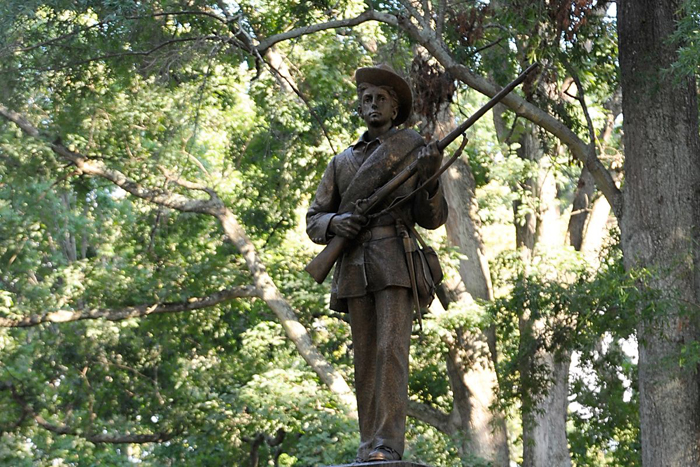Hundreds of UNC faculty members urge relocation of Silent Sam
Published 12:48 am Thursday, September 6, 2018

- Silent Sam
By Susan Svrluga
The Washington Post
Hundreds of University of North Carolina faculty members sent a letter Wednesday to school officials urging them not to return to its original location a Confederate statue toppled by protesters.
Last month, protesters in Chapel Hill took down a memorial known as Silent Sam, but school officials have not said what will happen to it. On Friday, UNC Chancellor Carol Folt said the statue does not belong “at the front door” of the university, and 450 professors expressed their support for her words Wednesday.
“We, the undersigned faculty, commend as an important first step Chancellor Folt’s Aug. 31, 2018, statement that the Confederate monument does not belong ‘at the front door of a safe, welcoming, proudly public research university,'” they wrote.
“We are determined to have a strong voice in the decision about the disposition of the monument. We are also encouraged by recent statements by clergy and business leaders in Chapel Hill that make clear their unequivocal opposition to the reinstallation of the statue in its former location. The civic, economic, emotional, and cultural well-being of our community, as well as the university’s educational mission, will suffer continued damage by the presence of the monument on McCorkle Place,” the letter said.
James Moeser, chancellor emeritus, was one of the signatories. Moeser did not immediately respond to a request for comment Wednesday afternoon.
Some faculty members had urged Folt and UNC’s provost last week to be more assertive about not restoring Silent Sam, said Edwin Fisher, a professor in the Gillings School of Global Public Health.
There is debate within the faculty about whether the statue should be allowed anywhere on campus and about whether criminal and university charges should proceed against those accused of toppling Silent Sam. But hundreds felt Folt’s words Friday should be strongly supported – a consensus that the statue should not return to its former position of prominence at an entrance to the public university campus.
Fisher said many people, like him, “are embarrassed by the statue, feel that it detracts from the university’s reputation,” even as they think about the real harm it may do to people who aren’t white, “as it represents not just a historical oddity, but an active representation of themes of white supremacy and racism that are still rampant in our culture — witness Charlottesville last year.”
Last year in Charlottesville, Virginia, violence erupted as white supremacists and others rallied in support of a Confederate statue, and crowds gathered to counter their message.
Fisher said some faculty are concerned that pressure from the board of governors, which oversees the UNC System of schools statewide, and state legislators may make it difficult to move the statue elsewhere.
A spokesman for the board of governors did not immediately respond to a request for comment Wednesday afternoon.
The monument was erected in 1913 to honor graduates who died fighting for the Confederacy. In more recent decades, it has become a polarizing symbol and the target of protests, with some seeing it as a glaring relic from a racist past.
Other groups in Chapel Hill and on campus have spoken out in recent days against the statue being returned, Fisher said. So have 41 department chairmen at UNC and the Administrative Board of the Library, which passed a resolution indicating the monument should not be placed in any of its libraries.
Last week, supporters of the statue rallied around the base of the monument, and some have left flowers and other tokens of support for fallen soldiers.




